Did The Virus Trigger the 2020 Worldwide Economic Crisis?
“You lose your job. Small and medium sized enterprises go bankrupt. Even the whole tourist industry is paralyzed. There’s no air transport. There’s no public transport, in some cases. And then they make us believe that this is required to solve a public health crisis!”
– Professor Michel Chossudovsky
LISTEN TO THE SHOW
Click to download the audio (MP3 format)
Last Sunday (January 30th) marked the first anniversary of the announcement of the World Health Organization (WHO) of a global health emergency stemming from 83 cases of a specific disease outside of China.
Three weeks later, on February 20, the WHO Director General, Dr Tedros Adhanom Ghebreyesus, announced he was “concerned that the chance to contain the coronavirus outbreak was “closing.” He also mentioned his belief that “the window of opportunity is still there, but that the window is narrowing.” A statement based on 1073 carrying the virus, far too low to justify an emergency. Yet, the stock markets plummeted, apparently linked to the horror of the Director General’s statement.
And three weeks after that, the dreaded ‘pandemic’ was formally announced and instructions to implement the lockdown of all 193 member states were initiated.
Now, following the debut of a second wave in the fall, more citizens willingly tolerate continued shut-downs leading to businesses, schools, universities and other institutions shutting down, people distanced from one another, and facial masks as mandatory in all interior spaces outside the home.
The stage for the ongoing corona virus is a campaign of FEAR gripping the population, in spite of the fact, according to a paper by John Q A Ionnidis, the rate of death of infected individuals is between 0.15-0.20% (0.03‐0.04% in those <70 years). This is about even with the Asian Flu pandemic of 1957-58, yet that pandemic did not compel the population into drastic lock-down measures that have crippled us all around the world.
And what about the repercussions?
According to the International Labour Organization, 8.8 per cent of global working hours, the equivalent of 255 million full time jobs were lost during the last quarter of 2020. This is four times the equivalent of working hour losses during the global financial crisis of 2009.
As for famines, The UN’s Food and Agriculture Organization (FAO) and World Food Programme (WFP) identifies 27 countries that are seeing deepening food insecurity from COVID-19-driven food crises, with 20 countries facing spikes in high acute food insecurity.
Who is instigating this panic?
Well, one man who says he has studied the crisis every day over the past year, claims that it is the financial elites, and not the bloody virus, that is responsible for the ravaging of the world’s economies. Regarding the stock market collapse and the majority of nations closing down their economies, these wealthy, wealthy people were the big winners having secured trillions of dollars over the course of the play-out. That man’s name is Michel Chossudovsky, and he will be our special guest on the Global Research News Hour.
Over the course of a conversation spanning most of the hour, Chossudovsky discusses the unusual moves by the WHO Director General, he talks about the lockdowns doing more harm than good, he breaks down the Reverse Transcription Polmerase Chain Reaction (RT-PCR) as a flawed measure of the disease, talks about the hospital cases also being misleading, and much more.
Michel Chossudovsky is an award-winning author, Professor of Economics (emeritus) at the University of Ottawa, Founder and Director of the Centre for Research on Globalization (CRG), Montreal, Editor of Global Research. He has undertaken field research in Latin America, China, India, Southeast Asia, the Middle East, sub-Saharan Africa, the Pacific and has written extensively on the economies of developing countries with a focus on poverty and social inequality. His recent research focusses on economic and social policy, health economics, geopolitics, globalization. He recently authored the ebook: The 2020 Worldwide Corona Crisis: Destroying Civil Society, Engineered Economic Depression, Global Coup d’État and the “Great Reset”
LISTEN TO THE SHOW
Click to download the audio (MP3 format)
Transcript: Interview with Professor Michel Chossudovsky, Feb. 3, 2021.
Part One
Professor Michel Chossudovsky has been investigating the Corona virus pandemic virtually on a daily basis since January of 2020. As founder and director of the Centre for research on Globalization, and a professor emeritus of economics with a particular focus on economic and social policy, health economics, geopolitics, and globalization, he has unique insights into the financial forces surrounding the crisis. He recently wrote an ebook entitled:
He elaborates on his findings over the course of a full length feature interview transcribed below.
The Global Research asked him if his research around the H1N1 swine flu in the preceding decade informed his insights into the present situation.)
Michel Chossudovsky: Well, it certainly sets the stage because the WHO was involved in the fraud, and this was actually corroborated, and it even went to the European Parliament. There was a Commission of Inquiry. And they falsified the data on the H1H1. They falsified the impacts. And then they had this big contract with the pharmaceutical industry for the delivery of millions of doses of a vaccine.

And as we recall in Canada, most of those vaccines were dumped because in the process the virus had mutated, they were no longer functional and then the vaccine doses were sent off to developing countries.
Now what developing countries did with those vaccines we don’t know but they were dysfunctional, and we’re talking about millions of doses. And it was discovered of course that this vaccine simply was not functional and could not even be used.
There was no investigation or inquiry in Canada because the government actually spent several hundred million dollars to acquire these vaccines, and then after that, we simply didn’t use them.
So, there is a record of WHO corruption at the highest levels, and that’s on record, and there is also complicity of Big Pharma and of the governments in pushing the vaccine forward.
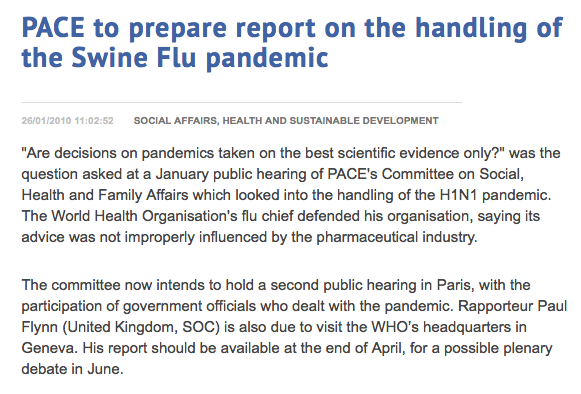
The governments of 193 countries, members of the United Nations, were ordered to close down their economy as part of the lock-down. In other words, you confine people [in their homes] on the one hand, and then people don’t go to work, so inevitably the economy of the country is partially closed. It’s an engineered recession. It’s the most serious economic crisis in World History. There’s no doubt about that.
Global Research: Actually there were about four separate events that led up – it was in four parts. I think the original part was in January. Could you maybe elaborate on those four steps to economic collapse?
MC: Well, I think the history is very important. And the history reveals the lies. And it reveals a diabolical project. I’ve been following that from the beginning of January 2020.
Now, the first major decision-making process was at Davos, at the World Economic Forum between the 21st and 24th of January 2020 where they actually discussed a vaccine. And they had been working on the vaccine for several months. We have evidence [statements] to that effect. And the vaccine had already been envisaged on 21-24 of January, at a time when there had been absolutely no announcement of a pandemic.
The only thing that happened was that in early January, the Chinese authorities said that they had identified the virus, and that virus then, of course, became “officially” acknowledged, and that was on the 7th of January.
So two weeks later, the World Economic Forum comes out and says, “ we’ve got a vaccine.” And they had been working on it for several months prior. In fact it went back to the beginning of 2019!
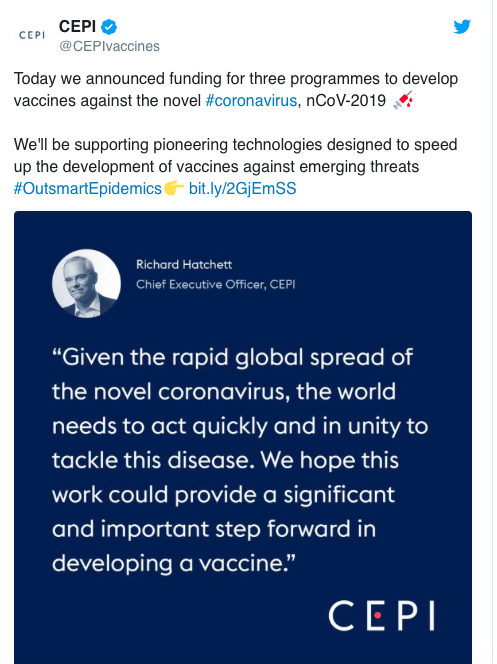
Now, bear in mind that outside China, on the 21st of January, there were virtually no cases of COVID-19, at that time.
GR: And this group just happened to have a vaccine!
MC: [The vaccine was the object of discussion, [the CEO of Moderna presented the mRNA vaccine project]
Then of course on the 30th of January there was a major decision by the World Health Organization by the Director General Tedros who declared a public health emergency of international concern (PHEIC), it was on the 30th of January, it was coupled with something of the order of 83-86 positive cases worldwide outside of China.
Now, anybody who looks at those figures would say, well that does not justify a public health emergency of international concern [PHEIC] with 86 cases out of China! there were 5 cases in the US, 3 in Canada, 4 in France, 4 in Germany.
Do these numbers justify the declaration of a Worldwide public health emergency?

The fear campaign was sustained by political statements and media disinformation.
Now, the following day, the (former) president of the United States, Donald Trump – makes a statement saying he is suspending air travel with China, and this in a sense was ultimately a trigger mechanism which then led to a crisis in commodity trade and in air travel, and it’s ongoing.
So it started on the 31st of January, and the justification was 5 cases in the U.S.! Okay?
GR: Ha ha.
MC: Five cases in the U.S.! And then you have another stage which is absolutely crucial, that people will remember throughout the world. It’s the financial crash of 2020, which started on February 20th, 2020.
According to analysts, this is the most serious economic collapse in World History. It is far more devastating than the Great Depression of 1929.
GR: And it happened at the same time that the doctor made the announcement of this pandemic in February, correct?
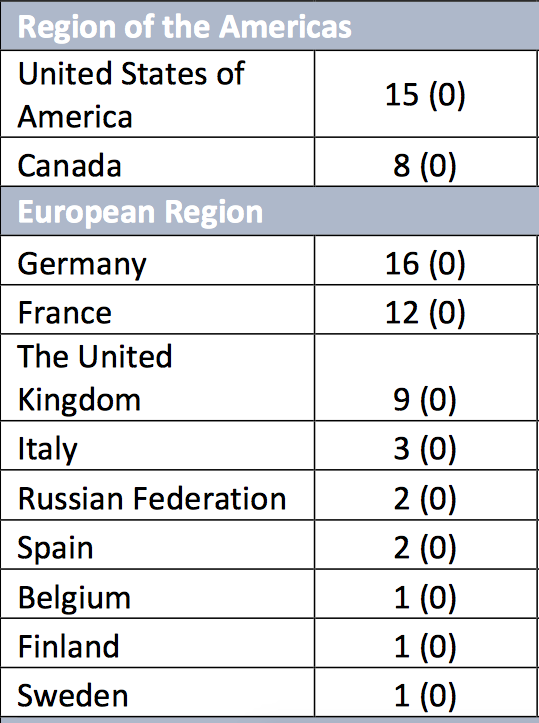 MC: Well, what happened is that on the 20th of February, Tedros, Director General of WHO, makes a statement, he holds a press conference and then he says very explicitly, “the windows are closing”, [he intimates that] the situation is very serious, and we can resolve it but we have to be very proactive.
MC: Well, what happened is that on the 20th of February, Tedros, Director General of WHO, makes a statement, he holds a press conference and then he says very explicitly, “the windows are closing”, [he intimates that] the situation is very serious, and we can resolve it but we have to be very proactive.
In other words, he was saying that the situation was tremendously serious and that was a lie! It wasn’t tremendously serious!
There were one thousand and seventy three cases outside of China for a population of 6.4 billion people. Okay?
15 in the US, 8 in Canada, 16 in Germany (see table right)
GR: Yeah.
MC: Now anybody who has an understanding of health indicators or statistics will say that these numbers are ridiculously low.
And I should mention that out of that 1073 cases, approximately sixty per cent came from the Diamond Princess Cruise which was stationed [in Japanese territorial waters] outside the Port of Yokohama.
 The people on the ship were confined [to their rooms] and they all got sick, and a lot of them were elderly people. But they took those statistics to push the number of confirmed positive cases up to 1073.
The people on the ship were confined [to their rooms] and they all got sick, and a lot of them were elderly people. But they took those statistics to push the number of confirmed positive cases up to 1073.
Otherwise it would have be something of the order of 450 cases outside China, out of population of 6.4 billion. billion.
Now, I would say that is a grotesque lie to – if you’re going to say it’s a really serious situation, i.e. we’re going to have a pandemic – well you have to give the figures. They’re about to say – a hundred thousand people there. A hundred thousand there. That did not happen.
No. One thousand and seventy three cases. He acknowledged the figures. Those are WHO figures. They’re undeniable. And what happened? The following day the stock markets collapse.
GR: So you’re saying this is essentially a sense of – a process of basically engineering the collapse. It wasn’t something “Oh! A Stock market crash!” There were some other forces that would push for that to collapse.
MC: Well, you know, the economic analyst will say it’s V the virus that triggered the collapse of the stock markets. Okay? It’s not V the virus! Because there were only a thousand and seventy three cases worldwide outside of China. It wasn’t.
It was the FEAR campaign on the one hand, and it was shear media disinformation and it was conflict of interest – I won’t elaborate on that – between Tedros and powerful financial interests. That financial collapse was engineered.
People had foreknowledge of what Tedros was going to say on the 20th of January, and they had already placed their bets on the stock market, in the hedge funds and, you know, foreknowledge and inside information is the key to money-making on financial markets. Everybody knows that. At least the financial analysts know that. [and it is illegal]
And what happened also is that in the course of that financial crash, there was a process of enrichment which is also unprecedented.
Unprecedented enrichment of the financial establishment. And we know that, of course, the stock market goes down, you speculate. They’re ‘put’ options, okay? ‘Put’ options, but there are other speculative instruments.
But what I am saying, is that there’s conflict of interest and there is fraud at the highest levels of the financial establishment, and possibly conflict of interest at the level of the World Health Organization.
We can consult the WHO, they have criteria on conflict of interest. But when a scientific statement is made, or when a health emergency is suggested, inevitably this then becomes the bread and butter of the financial establishment. They make money through deception.
GR: Another critical date, of course, as you mentioned earlier is March 11, that was the period during which the lock-downs took place and that again, the wealthy class profited from it.
So, are you saying that we have this collapse that’s fundamentally benefiting the upper class – the billionaire class at the expense of the less wealthy?
MC: Well absolutely what happened on March 11, there was something like forty four thousand cases worldwide outside of China, which is not a large number:
The number of confirmed cases outside China (6.4 billion population) were of the order of 44279 and 1440 deaths (figures recorded by the WHO for March 11, (on March 12) (see table right). (The death figure outside China mentioned in Tedros’s press conference was 4291).
But what was important is that on March 11, which was the official declaration of the pandemic was coupled with a lock-down.
And at the same time the lock-down was to be implemented by freezing or closing down national economies, not totally obviously.
The instructions were transmitted to 193 member states of the United Nations. But there’s a decision making process. Obviously it doesn’t emanate from the World Health Organization. This decision came from higher up, it came from the powers of global capitalism. I won’t get into that at this stage, but I can say first of all as an economist, you don’t resolve a public health crisis by closing down your economy.
First of all, there was no basis for declaring a pandemic with the figures of confirmed cases in early March. Absolutely not! At a time when the situation in China was marked by recovery.
There was no basis for declaring a pandemic on March 11.
But then, if you are to declare a pandemic on March 11, the last thing you do is to close down your economy, because ultimately. you need your economy to sustain, people’s ability to deal with the pandemic!
And what happened on March 11 is that millions and millions of people worldwide were driven into unemployment. Millions of small and medium sized enterprises were driven into bankruptcy. The informal urban sector in developing countries, the self-employed, this is the biggest devastation broadly affecting people worldwide. And somehow, public opinion doesn’t understand that!
You lose your job.
Small and medium sized enterprises go bankrupt.
The whole tourist industry is paralyzed. There’s no air transport. There’s no public transport, in some cases.
And then they make us believe that this is required to solve a public health crisis! Which is not necessarily corroborated by the figures that I’ve just mentioned.
We had what was called the ‘first wave’ which started in March, and I can say having examined the figures, this has led to mass unemployment, it has led to extreme poverty, and it has led to despair beyond poverty bearing in mind that a large part of the world population is already impoverished. [i.e. in Third World countries.]
When they lose their means of survival, it’s famine. And the FAO has in fact confirmed that there’s famine in some twenty five countries.
I think it’s much more. All the figures that we get are in a sense conservative, and they don’t address the underlying causality. They don’t tell us that it is the decision on March 11, 2020 which spearheaded global poverty.
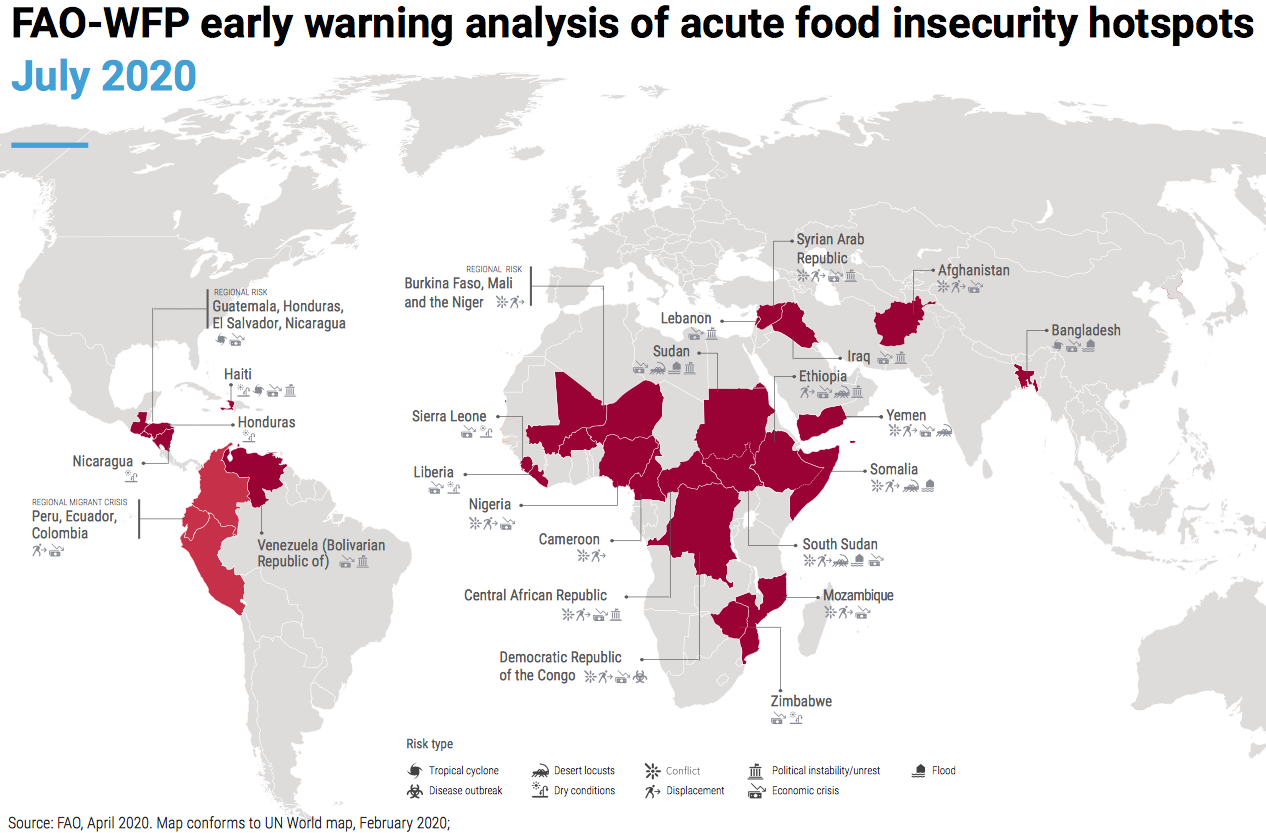
I should mention also, because I’ve worked on these issues, that when purchasing power collapses, the first thing that happens in developing countries is under-nourishment at the household level [eventually leading to malnutrition].
People don’t have enough money to buy food. They don’t have enough money to buy essential commodities.
They are in a situation of despair, and if they’re poor and they don’t have savings, they will not be able to pay their rent. If they are middle class, they won’t be able to pay their mortgage or their credit card. In other words, this is a process of social devastation which is unprecedented in World History. And it is hitting every single country on the planet. More than seven billion people.
Now, I can say that because I’ve been studying mechanisms of bankruptcy throughout my career, and I’ve seen ad-hoc mechanisms where creditors come in – IMF, the World Bank come in – and this leads to poverty. But here we have a mechanism which is not even negotiated by a national government with the IMF. It’s a procedure which spreads across the planet and it literally destroys people’s lives
Transcript of Part Two of this Interview with Michel Chossudovsky (Forthcoming)

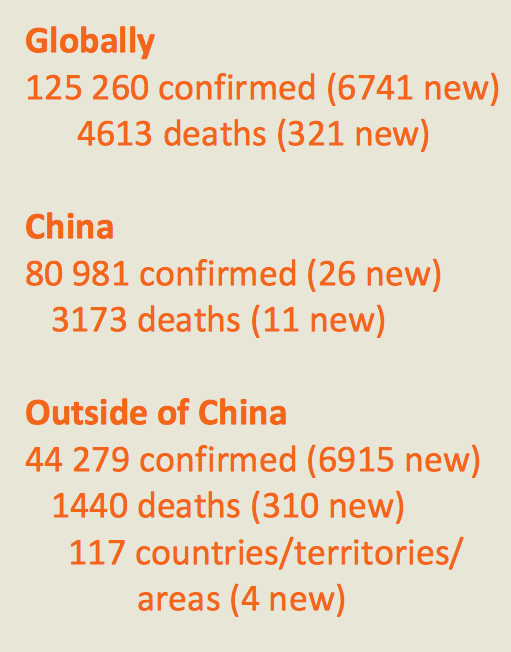
No comments:
Post a Comment
Leave your thoughts & comments